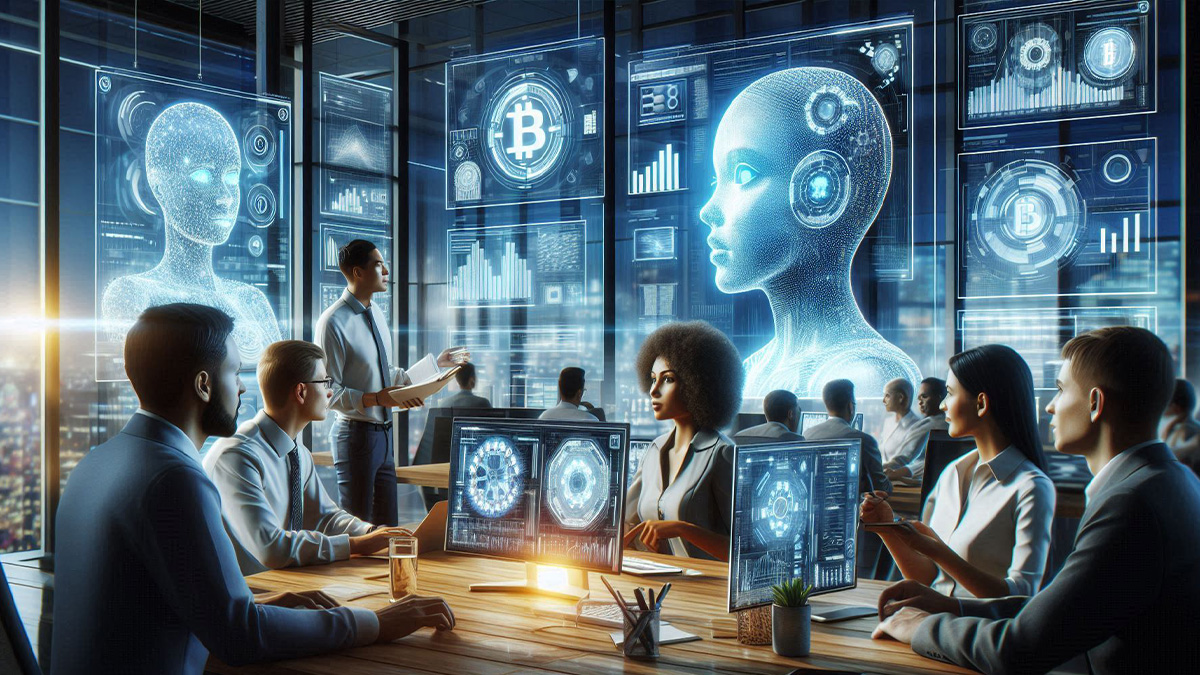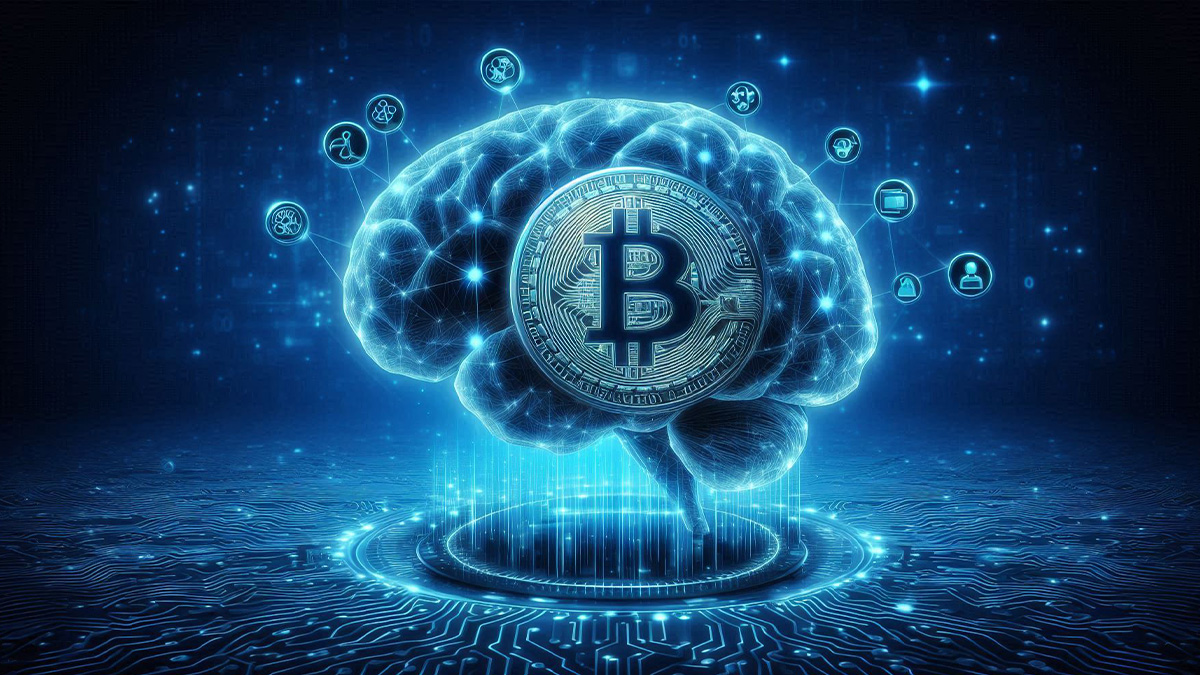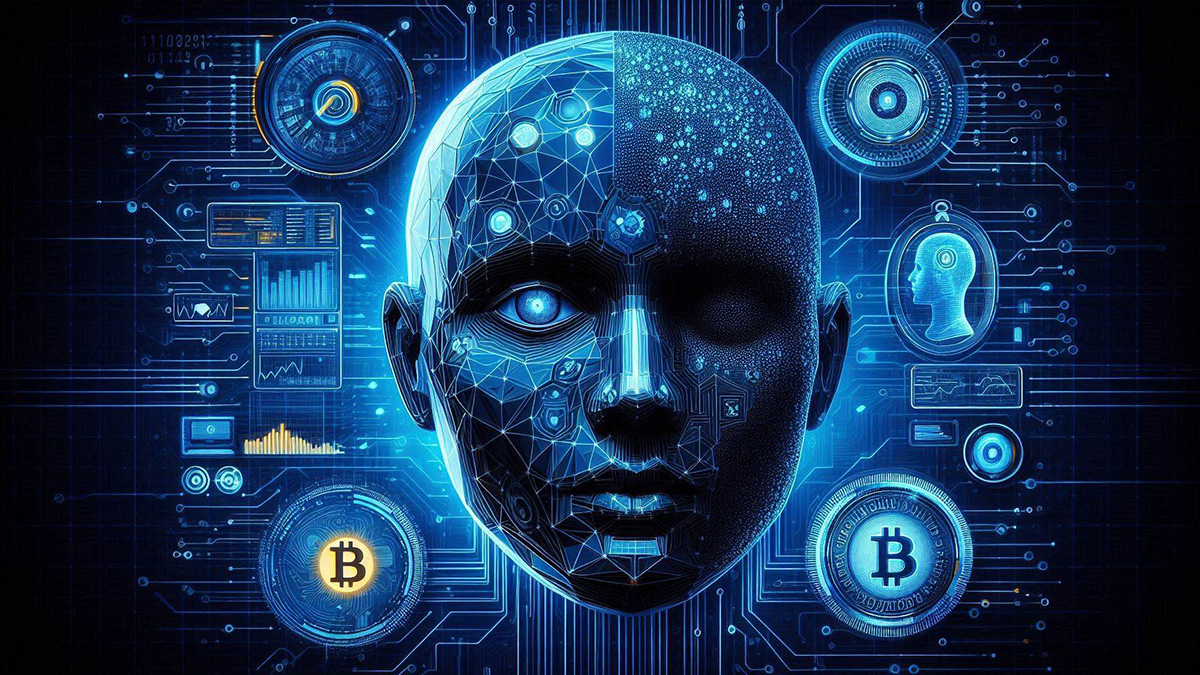The rise of AI in cryptocurrency trading is empowering traders to analyze markets, execute trades and manage risk better than before. AI is used to predict price movements for automatic bots executing high-existing trades. While these innovations bring incredible opportunities for better accuracy and efficiency, they also introduce new risks including safety concerns and manipulation in the market. In this post, we will find out how AI is transforming cryptocurrency trading, providing significant advantages, and why traders must navigate the challenges well.
Introduction to AI in Cryptocurrency
With the highly volatile and unpredictable nature of cryptocurrencies, AI-driven solutions provide traders with powerful tools to enhance accuracy, automate processes, and reduce risks. From predictive analytics to automated trading bots, AI is reshaping the landscape of digital asset trading, making it more efficient and data-driven. How? Let’s see.
How AI is Used in Cryptocurrency Trading

- Predictive Analytics & Market Forecasting
Machine learning algorithms employed by AI analyze historical price data, market trends, and social opinion to predict future price actions. Predictive models allow traders to anticipate changes in the market and make fact-based decisions rather than speculations.
- Automated Trading Bots
Computer programs trading bots automatically place trades in accordance with pre-programmed strategies, eliminating emotional bias from trading. Trading bots run 24/7, enabling traders to capitalize on market opportunities even when they are not actively watching the charts.
- Sentiment Analysis
AI scans news articles, social media, and sentiment gauges of the market to identify the overall sentiment of the cryptocurrency market. By identifying public sentiment, traders can predict future price movements and adapt their strategies accordingly.
- Risk Management & Fraud Detection
AI helps traders and exchanges identify fraudulent transactions, suspicious transactions, and enhance security measures. It also helps identify stop-loss levels, portfolio risk management, and preventing market manipulation.
- Arbitrage Trading
AI algorithms identify discrepancies in prices on different cryptocurrency trading platforms and engage in arbitrage trades to capture the price imbalances. Under this strategy, traders can exploit the price variation by selling higher on one site and buying cheaper on another in a split of seconds.
- Portfolio Optimization
Portfolio optimization software based on AI studies risk indicators, previous performance, and market conditions in order to propose an ideal asset allocation strategy. This maintains a well-diversified portfolio for the trader that is optimized with maximum returns.
Note: The role of AI in cryptocurrency trading becomes prominent. Therefore, traders and investors should be informed about both opportunities and risks associated with AI-operated equipment. While AI enhances efficiency and profitability, challenges such as regulator concerns, security risks and dependence on algorithm decision making should not be ignored. In the developed scenario of crypto trading, the AI digital asset is ready to play an important role in shaping the future of markets.
Read More: Why Crypto Prop Trading Is a Talking Point in 2025
Benefits of AI Integration in Cryptocurrency Trading
Application of AI technology in crypto trading is transforming the market because it provides traders with real-time analysis of data, identification of patterns, and predictive modeling that were not attainable through manual processes. Unlike conventional trading models dependent on high human instinct and historical trends, AI-based platforms learn from newly arriving data and their accuracy and effectiveness are enhanced over time.
This real-time responsiveness allows traders to respond to market movement as it occurs, taking opportunities with precision. Furthermore, AI allows for the identification of subtle market signals that may evade human traders, allowing for optimal decision-making beyond traditional indicators.

Apart from execution of trade, AI is also instrumental in building security, transparency, and access in cryptocurrency markets. It elevates fraud detection by identifying suspected fraudulent transactions and reducing the potential for cyber-attack and market manipulation. AI empowers everyone, including institutional and retail investors, to access complex analytics previously available to large-scale financial institutions only.
Secondly, AI-driven automation reduces operational costs through the minimization of the need for substantial manual monitoring while maximizing the overall efficiency of the market. As advances in AI continue, the use of AI in cryptocurrency trading is not just about keeping up with the times—it is now an imperative if one desires to stay competitive within the rapidly evolving financial environment.
Read More: Top 5 Cryptocurrency Benefits: Crypto Vs. Traditional Currency
Summary of AI Benefits in Cryptocurrency Trading
| Benefit | Description |
| Real-Time Data Analysis | AI processes vast amounts of data instantly, allowing for quicker decision-making. |
| Adaptive Learning | Machine learning continuously improves trading models by learning from market trends. |
| Advanced Pattern Recognition | AI detects subtle market signals that human traders might overlook. |
| Enhanced Security & Fraud Detection | AI helps prevent cyber threats and fraudulent transactions in crypto trading. |
| Democratization of Trading Tools | AI-powered analytics make advanced trading strategies accessible to all traders. |
| Cost Reduction & Efficiency | Automation reduces manual workload and lowers operational costs. |
| Market Transparency & Stability | AI improves price accuracy and reduces the impact of market manipulation. |
Potential Risks and Challenges of AI in Cryptocurrency Trading

The use of AI in cryptocurrency trading carries a series of risks, some of the most critical of which are market volatility and algorithmic failure. AI models are trained beforehand on historical data as well as real-time data, but in such an unstable marketplace as crypto, sudden regulatory measures, hacks, or black swan event, can render AI forecasts obsolete. Additionally, badly optimized trading bots can amplify market activity by executing a massive volume of trades simultaneously, leading to flash crashes. Safety is also a great threat, as systems powered by AI may be compromised by intruders to manipulate trade trends or execute fake trades.
But functional and moral challenges make it difficult to integrate AI in trading. The majority of AI models are “black boxes,” and as they do not expose their internal logic, traders cannot fully understand why and how automated trades are being conducted. Lack of transparency makes accountability challenging when AI-driven systems make costly mistakes. Additionally, a definitive regulatory framework on AI in crypto remains outstanding, which generates legal ambiguity for traders as well as financial institutions. There are also ethics issues, as well-equipped institutional traders using advanced AI functions would be able to create an uneven advantage over retail investors, widening differences between different market players.
Ultimate Solutions
- Implement AI Monitoring & Human Oversight: Regularly audit AI trading models to prevent algorithmic failures and excessive volatility.
- Enhance Security Measures: Strengthen cybersecurity protocols to protect AI systems from manipulation and hacking.
- Develop Clear AI Regulations: Advocate for transparent AI regulations to ensure fair trading practices and market stability.
Future Outlook of Artificial Intelligence Crypto Trading

The future of trading in cryptocurrencies with AI is in for explosive development, offering the traders more and more sophisticated tools for market analysis, automation, and risk management. As AI models themselves advance, they will better learn how to adapt to existing market circumstances, increase predictability, and reduce reliance on historical data alone.
Combined with quantum processing, the addition of deep learning can enhance still more the processing power of vast amounts of data by AI to make trading a more efficient data-driven system. On their side, artificial intelligence-traded platforms would be more likely to be embraced by individual and institutional investors to make trading through next-generation technology wiser in decisions.
But with increased AI in cryptocurrency trading come the challenges of regulation and ethical implications. Governments and financial regulators will need to impose stricter regulations to prevent manipulation of the market, ensure transparency, and alleviate concerns of the impact of algorithmic trading on market stability.
Further, the ongoing progression of XAI aims to make AI-driven decisions more interpretable, so traders can look through to see the rationale for robotic trades. While technology and regulation continue to progress hand in hand, AI will be an inexorable part of cryptocurrency trading that results in a future where human input and automation move in harmony to increase the efficiency and safety of trading.
FAQ
- How does AI improve cryptocurrency trading strategies?
AI enhances cryptocurrency trading by analyzing vast amounts of market data in real-time, identifying patterns, and making predictions about future price movements. It helps traders develop data-driven strategies and automate trades, reducing human error and emotional biases.
- Can AI predict cryptocurrency market crashes?
While AI can identify patterns and trends, it cannot predict sudden market crashes with complete accuracy. Unexpected events such as regulatory changes or major hacks can disrupt market conditions, making it difficult for AI to anticipate such extreme shifts.
- Are AI trading bots safe to use in cryptocurrency trading?
AI trading bots can be safe if properly configured and monitored. However, they can also be vulnerable to hacking or algorithmic failures. It’s crucial to use secure platforms and regularly audit the performance and security of AI systems.
- What role does AI play in market liquidity?
AI contributes to market liquidity by enabling high-frequency trading, arbitrage, and efficient trade execution. It helps ensure that assets are bought and sold quickly at optimal prices, making the market more liquid and accessible to traders.
- How does AI impact trading costs?
AI can reduce trading costs by automating tasks, such as data analysis and trade execution, that would otherwise require significant time and resources. It also allows traders to react to market changes more swiftly, potentially increasing profitability without increasing overhead.
- Can AI replace human traders in cryptocurrency?
AI can automate many aspects of trading, but it is unlikely to completely replace human traders. While AI excels in processing data and executing trades, human oversight remains essential for strategic decision-making, risk management, and handling market anomalies that AI may not fully understand.







